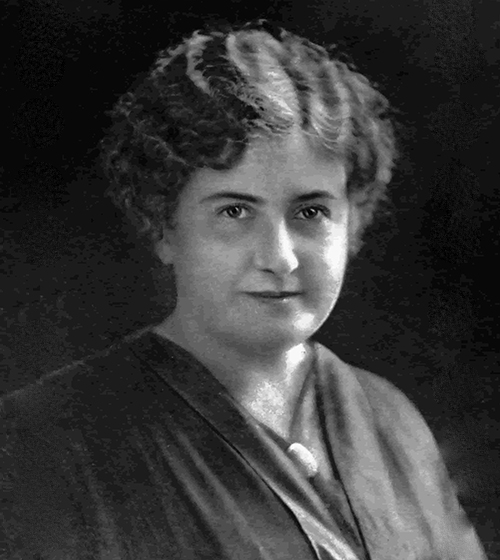Dr. Maria Montessori (1870-1952) was an Italian physician and anthropologist who devoted her life to understanding how children develop socially, intellectually, physically, and spiritually. By carefully observing children all over the world, she discovered universal patterns of development which are found in all children regardless of their culture or the era in which they live. Dr. Montessori was one of the first women to be granted a diploma as a physician in Italy. Following her interest in human development, she assisted at a clinic for children with mental illnesses. She later directed the Orthophrenic School in Rome for children with physical, mental and emotional challenges. During this time Dr. Montessori lectured throughout Europe concerning the needs of children and their value to the future of our societies. She stressed the need to change our attitudes about children and their treatment.
In 1907, Dr. Montessori was given the responsibility of caring for a group of children in the Rome’s San Lorenzo slum district. She began to see the importance of a positive, nurturing environment that changes with the developmental needs of the child.

As she observed the children and their response to the environment, she saw them demonstrate capabilities and interests that exceeded her expectations. The set of materials used in the “Montessori” environment were designed over a period of many years by Dr. Maria Montessori and her associates, creating a concrete, physical representation of the concepts and skills that children are naturally motivated to learn in their normal course of development.
Dr. Montessori conducted her first international training course in Italy in 1913, and her first American training course in California in 1915. As she carried her vision around the world, she felt that a time had come to ensure the quality and integrity of what was being handed down in her training courses. For that reason, she founded the Association Montessori Internationale (AMI) in 1929. Today AMI continues to support quality teacher training worldwide.
Maria Montessori was a visionary, not easily daunted by the many challenges she faced during her career. She traveled extensively, lecturing and teaching throughout Europe, India and in the United States. She was recognized for her efforts by educators, psychologists and political leaders of the day. Her associates included such people as Anna Freud, Erik Erikson, Mahatma Gandhi, Alexander Graham Bell and Jean Piaget.
Dr. Montessori was nominated for the Nobel Peace Prize in 1949, 1950 and 1951 and continued working, teaching and writing up to the time of her death. Over the past one hundred years children throughout the world have benefited from this educational approach that supports, nurtures, and protects natural development. Maria Montessori’s legacy lives on in the children whose lives are touched by her discoveries about life.